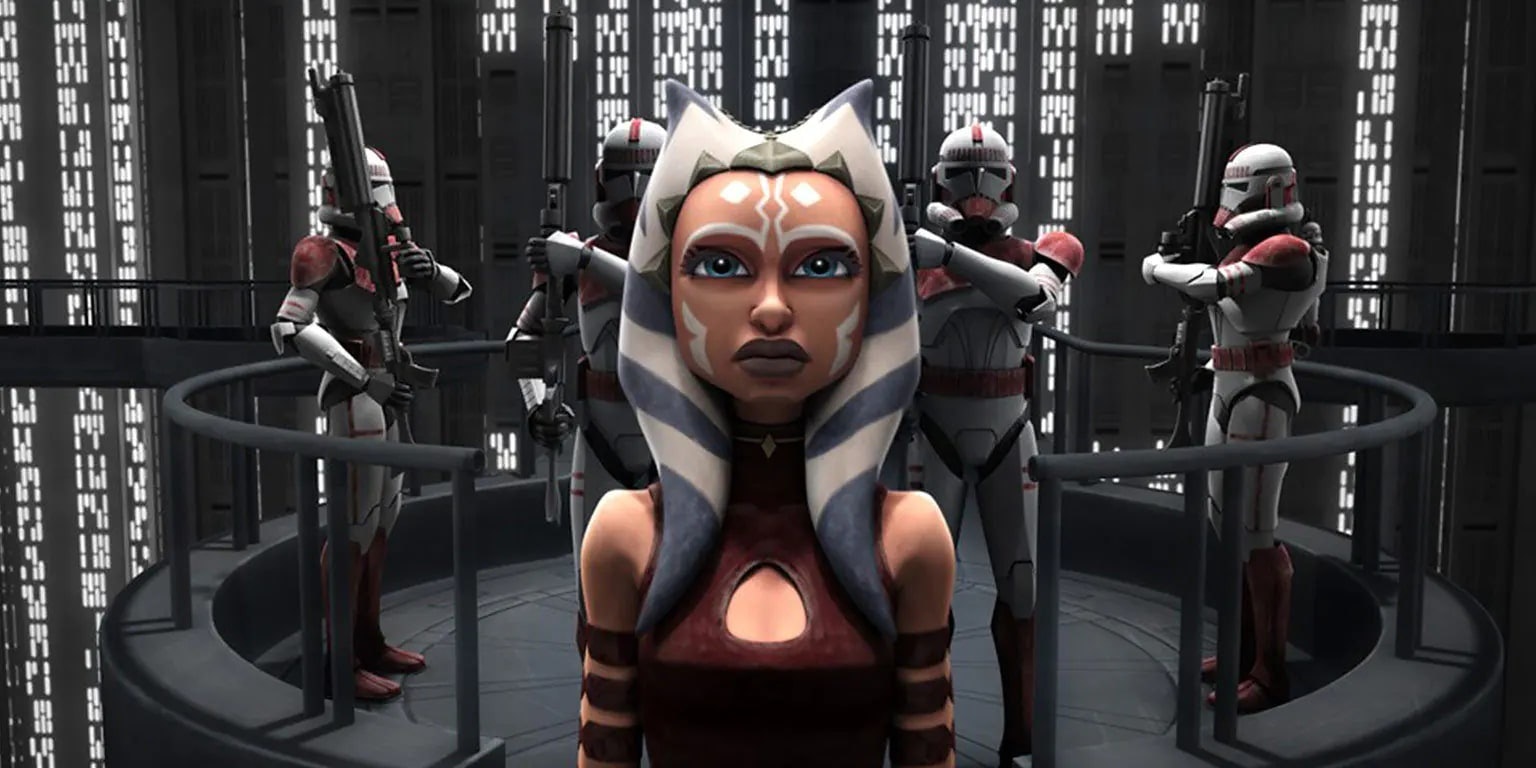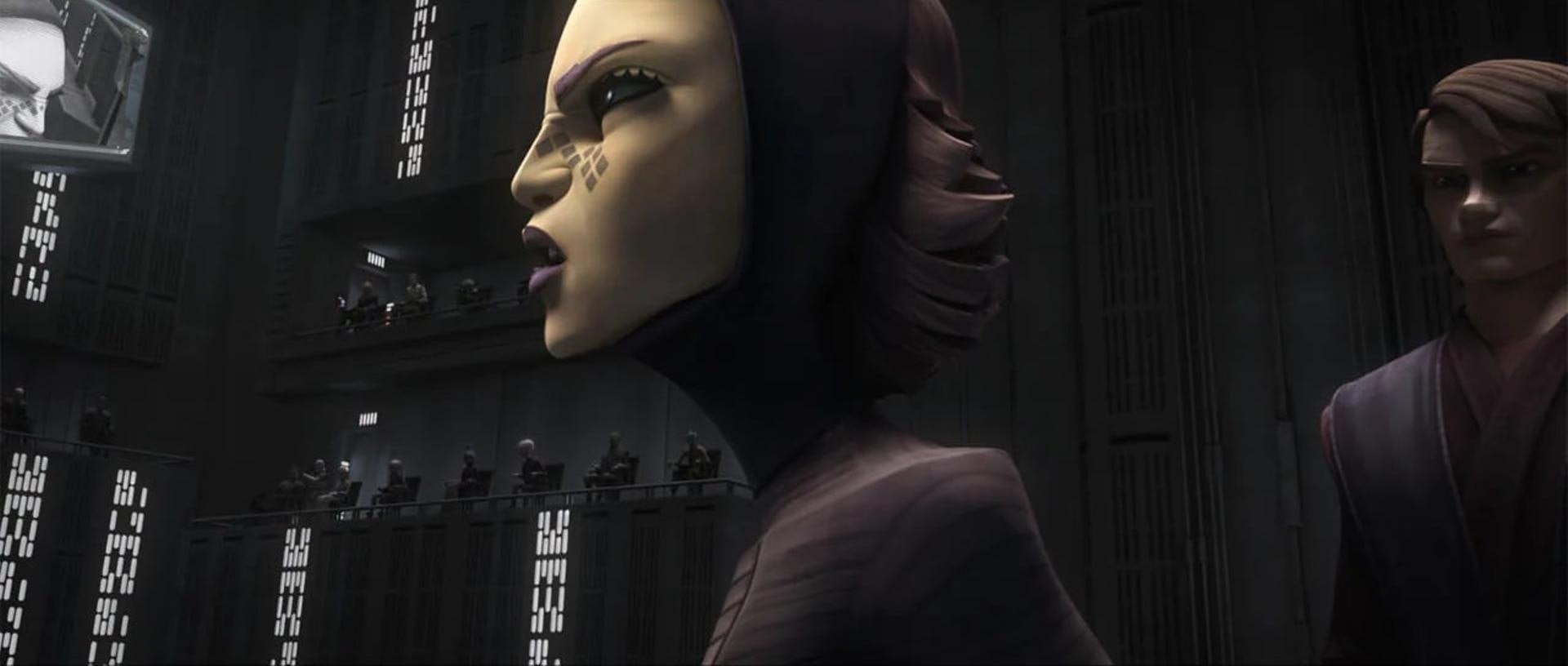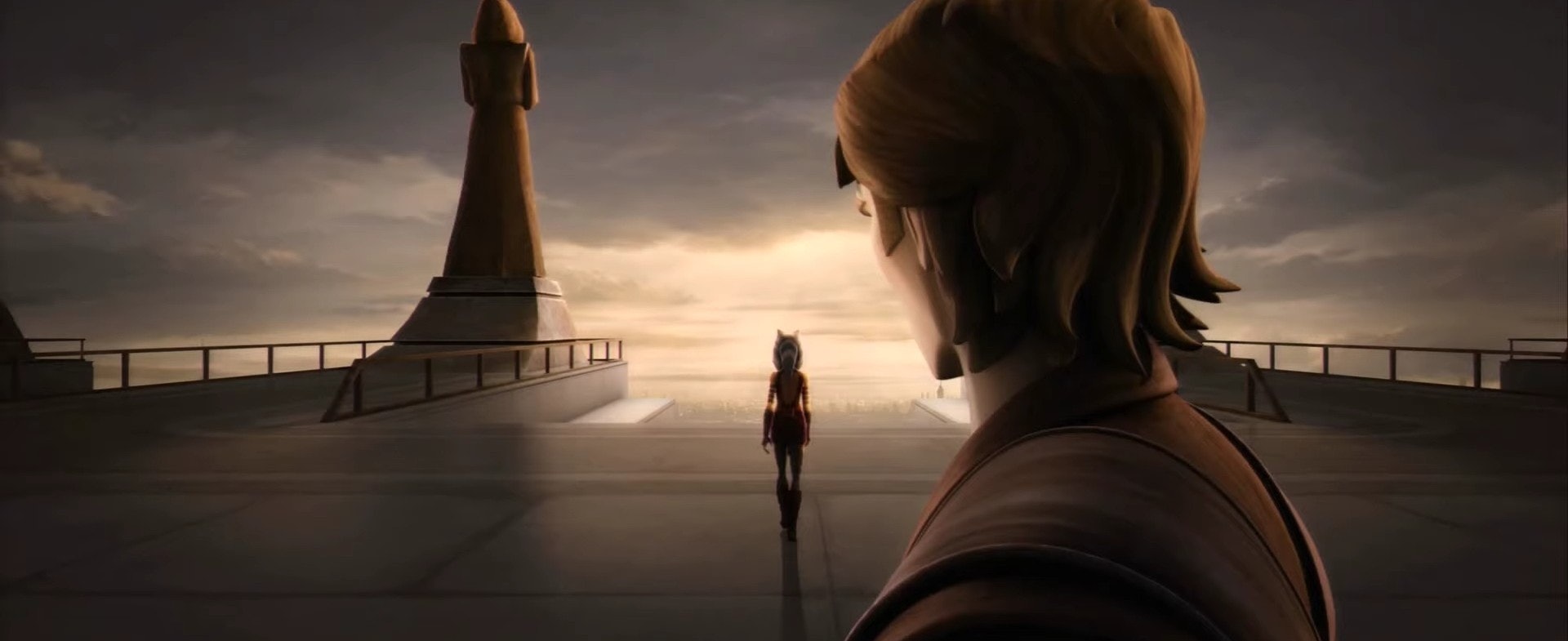
Star Wars: The Clone Wars has always had an air of obscurity. Although the series explored the prequel era in greater detail than we’ve ever seen, its animated medium and Cartoon Network distribution often limited its audience to diehard fans and children.
But in 2023, with Clone Wars showrunner Dave Filoni co-helming The Mandalorian and protagonist Ahsoka Tano getting a live-action spinoff courtesy of Rosario Dawson, the series is more important than ever. It has several stellar moments, but one 2013 episode proves just how clever and important Clone Wars stories could be.
On March 2, 2013, Cartoon Network aired “The Wrong Jedi,” the Season 5 finale of The Clone Wars. On March 11, StarWars.com revealed the episode would be the series’ last thanks to licensing issues. A Netflix Original series and a final season on Disney+ later provided a proper conclusion, but for a while, this was all fans had.
The episode is the final part in a Hitchcock-inspired arc following Ahsoka Tano as she’s framed for murdering Letta Turmond seconds before she could reveal the name of the Jedi behind a cataclysmic Jedi Temple bombing. Faced with no other options, Ahsoka makes an uneasy alliance with fallen Jedi Assajj Ventress, but is seemingly betrayed by her and her red lightsabers. Now, Ahsoka is in Jedi custody and set to stand trial for her supposed crimes.

To get a fair trial, Palpatine asks the Jedi to expel Ahsoka so she can be tried by the Republic. The Jedi Council, not wanting to make waves, reluctantly obeys. While Padmé Amidala defends her in court, Anakin searches for the truth by hunting down Assajj Ventress. That leads our heroes to Jedi Barriss Offee, who’s revealed as the thief of Assajj’s sabers and the true mastermind behind the bombing.
Anakin manages to apprehend Barriss and exonerate Ahsoka in the nick of time. But as she’s confessing her crimes, Barriss makes some excellent points about the Jedi. They do hold some responsibility for the Clone Wars, and their influence over the galaxy is too great for them to be considered peaceful.
It’s a truth viewers know Anakin will have quite an overreaction to later, but in this moment, it’s Ahsoka that takes her words to heart. When Anakin offers her a place as his padawan once again, she declines it. It’s a tragic end to the episode, and a moment that cements it as the most important of the series. “More than you realize, I understand wanting to walk away from the Order,” Anakin pleads. “I know,” Ahsoka says, before she walks away from him.

Ahsoka never returned to the Jedi Order. In later seasons of The Clone Wars and Rebels she came back to lead Republic and Rebel forces, but never as a Jedi. She acquired neutral white sabers, which she still sports in live-action. If it weren’t for this episode, Ahsoka would have remained a true believer, and likely would have perished in Order 66.
It’s also a fundamental episode for Star Wars as a whole. The franchise had long focused on good versus evil, with the Jedi always representing good. The prequel trilogy attempted to show some nuance by showing Anakin’s disillusionment with the Order, but audiences know that’s Sith-fueled and will end poorly. Ahsoka’s decision to leave is made rationally after she sees how quickly the Jedi will kowtow to the Senate and betray one of their own. Anakin was the only Jedi to believe in her, and he’s already got one foot out the door.
Ahsoka’s story in “The Wrong Jedi” tells you everything you need to know about her character: she’s stubborn and headstrong, but she also has a firm sense of right and wrong. Most importantly, she doesn’t need the label of Jedi to fight for what she believes in. That was clear in 2013, and it’s even clearer as we gear up for her spinoff show, Ahsoka.
Star Wars: The Clone Wars is now streaming on Disney+.







